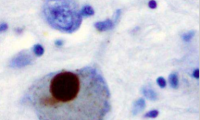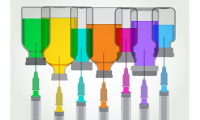-
GSK to buy Bellus Health and its chronic cough drug for $2B
- Source: drugdu
- 335
- April 20, 2023
-
J&J study data show dramatic benefit to multiple myeloma cell therapy
- Source: drugdu
- 109
- April 20, 2023
-
Ardelyx resubmits NDA for Xphozah to US FDA
- Source: drugdu
- 133
- April 20, 2023
-
Adding new vaccine type to leading immunotherapy dramatically reduced melanoma recurrence
- Source: drugdu
- 227
- April 17, 2023
-
Caris Life Sciences and Flare to collaborate for oncology pipeline advancement
- Source: drugdu
- 166
- April 17, 2023
-
How AI and a mobile phone app could help you quit smoking
- Source: drugdu
- 124
- April 14, 2023
-
Identifying ‘hallmark’ Parkinson’s disease protein buildup could aid early detection, improved diagnosis and treatment
- Source: drugdu
- 118
- April 13, 2023
-
Mediterranean diet may lower heart disease risk in women by nearly 25%, study finds
- Source: drugdu
- 105
- April 13, 2023
-
Moderna cancer vaccine takes positive step
- Source: drugdu
- 106
- April 12, 2023
-
FDA takes only drug for premature birth off the market
- Source: drugdu
- 124
- April 12, 2023
your submission has already been received.
OK
Subscribe
Please enter a valid Email address!
Submit
The most relevant industry news & insight will be sent to you every two weeks.













